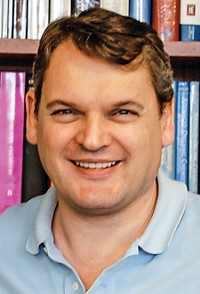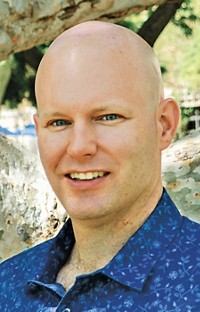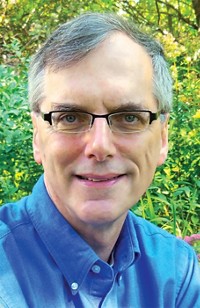Advertisement
Grab your lab coat. Let's get started
Welcome!
Welcome!
Create an account below to get 6 C&EN articles per month, receive newsletters and more - all free.
It seems this is your first time logging in online. Please enter the following information to continue.
As an ACS member you automatically get access to this site. All we need is few more details to create your reading experience.
Not you? Sign in with a different account.
Not you? Sign in with a different account.
ERROR 1
ERROR 1
ERROR 2
ERROR 2
ERROR 2
ERROR 2
ERROR 2
Password and Confirm password must match.
If you have an ACS member number, please enter it here so we can link this account to your membership. (optional)
ERROR 2
ACS values your privacy. By submitting your information, you are gaining access to C&EN and subscribing to our weekly newsletter. We use the information you provide to make your reading experience better, and we will never sell your data to third party members.
People
Arthur C. Cope Scholar Awards: Andrew J. Phillips
Recipients are honored for contributions of major significance to chemistry
by Carmen Drahl
February 28, 2011
| A version of this story appeared in
Volume 89, Issue 9

Try as he might, Andrew J. Phillips couldn’t run from a life as a chemist. Growing up in New Zealand with a chemistry teacher for a father, Phillips initially did what many children do—steer clear of anything remotely resembling their parents’ interests. “I spent quite a bit of time racing road bikes,” he says. But like a chemistry version of the prodigal son, he eventually returned, with a little encouragement and inspiration from John Blunt, Murray Munro, and Jonathan Morris, chemists at New Zealand’s University of Canterbury, where Phillips attended college and graduate school, the latter under the guidance of Andrew Abell.
Today a professor of chemistry at Yale University, Phillips, 40, has won an Arthur C. Cope Scholar Award for his outstanding accomplishments in natural product total synthesis and synthetic methodology. “I am absolutely blown away by how much Andy has accomplished,” says William R. Roush, a professor of chemistry at Scripps Florida.
The Phillips team is known for using tandem ring-opening–ring-closing–cross-metathesis reactions for building complex ring systems, such as the one found in the natural product norhalichondrin B. The team also uses titanium(II) to stitch molecules together in innovative ways. “Importantly, Phillips is not just cranking out syntheses but rather striving to develop lasting solutions” to challenges in his field, says Paul A. Wender, Bergstrom Professor of Chemistry at Stanford University.
Phillips “is one of the few young chemists in the field taking total synthesis to the next level of efficiency and practicality,” adds Phil S. Baran, a professor of chemistry at Scripps Research Institute.
“I’m very motivated to think of complex natural product synthesis with brevity as an overarching concern,” Phillips explains. That philosophy of efficiency crystallized during his postdoctoral stint with Peter Wipf at the University of Pittsburgh, an experience Phillips calls “the most special time of my scientific career.” Phillips says he came to Wipf’s lab in the U.S. for two reasons: to work on the kind of complex molecule synthesis work that isn’t easily done in New Zealand, and to follow a fellow chemistry graduate student at Canterbury who became his wife. “It worked out okay in both dimensions,” he quips.
In 2001, after his time in the Wipf group, Phillips began his independent career at the University of Colorado, Boulder. In the spring of 2009, he was a visiting associate professor at the department of chemistry and chemical biology at Harvard University and the Broad Institute, an experience he calls “transformative—it is having profound effects on my scientific thinking.” He joined Yale’s faculty in 2010.
Among other honors, Phillips has won an Eli Lilly Grantee Award, a National Science Foundation Career Award, and an Alfred P. Sloan Research Fellowship, all in 2006.
Phillips says he’s thankful for the talented coworkers he’s had over the years. “I’m always in awe of their efforts,” he says. He still rides his bike on occasion but prefers spending time with his wife, who conducts research at a biotechnology company, and their two children.





Join the conversation
Contact the reporter
Submit a Letter to the Editor for publication
Engage with us on Twitter